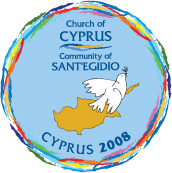
Cardinale, Archevêque émérite de Washington, États-Unis
|
First of all, obviously I want to express my deep gratitude for the opportunity of making a presentation on this very distinguished panel. There is no question in my mind but that the other members of the panel are more eloquent, more prepared, more experienced and wiser than I am. I accepted this opportunity partly because I have been blessed by the opportunity of meeting in many of these official dialogues and of seeing the value and the urgency of the intimate family dialogue which takes place when the families of Christians and Jews are together and are able to share the wondrous gifts and the terrible sorrows which have touched their lives.
I have just come from Budapest where I was part of an official Vatican dialogue with leaders of the Jewish communities in Eastern Europe and especially in Hungary. For me, this was again a graced moment as I saw the life of the Lord Our God reflected in the goodness of people on both sides of the dialogue to move forward from the problems of the past to a greater understanding of one family under God in the years ahead.
It seems to me that there are probably many reasons that our dialogue is unavoidable, but let me share seven with you just as a possible cause for conversation both in the panel and later on when we can all join in.
First of all, I believe we share an essential sacred book. The Bible, the Old Testament, the Hebrew scriptures, whatever one calls those remarkable books of divine revelation which go from the Torah up to the later books which, for us, end with the Books of Maccabees, although I appreciate that every faith community does not accept them as canonical. Even though the Christians have the Gospels and the epistles of the apostles as part of their doctrinal foundations, and even though together with the sacred books of the Bible, our Jewish brothers and sisters are guided by the commentaries in the Talmud, the Mishna and the Gemmarah, yet essential books of the history of the people of Israel have always formed a major part of our mutual heritage. They are prayed in Christian churches, as well as in synagogues throughout the world. They are read and meditated on and commented on, exegeted and discussed by both families of faith. Please God, they are plumbed for their wonderful insights, their beautiful expressions of adoration and petition and they make, indeed, a wonderful foundation for a dialogue which perforce must emerge from conversations concerning them.
Secondly, we share a sacred history. For most of our histories we have been spiritually one. Christianity came upon the scene less than 2,000 years ago, but the history of the people of Israel, the chosen people of God, a history which we share and without which we would be aimless and empty goes back even to the of creation and in a special way to the man we Christians call Abraham, our Father in Faith. Indeed, in that most essential part of Christian history, the years of what we proclaim as the first century after the birth of Christ, we speak almost totally of men and women who belong to the family of Abraham in the sense of flesh and blood. Not only Jesus, his mother and his family, but all his apostles and disciples, in those early essential moments were all Jewish, and so it is impossible to separate our histories, especially at that moment when for us all things began anew.
The third point would be that we share almost indescribable sorrows. The early centuries of the Christian era saw those who followed Christ persecuted terribly by the Romans and by others throughout the then known world. The very earliest days of Christianity found that even in the Jewish communities brother turned against brother and family against family as some accepted the Gospel teachings and others found their fidelity in a courageous adhesion to the covenant of Israel. Throughout their own history, the people of Israel have suffered persecutions in the times of the judges, in the times of the kings and, with great sorrow, we must admit, in the times of the Christians as well. The pogroms which are so dark a blot on the history of Christianity where our brothers and sisters of the first covenant were persecuted, often killed, and driven from one place to another are signs of the sorrow that faced that part of our own family in the Middle Ages and, indeed, up to the Shoah itself. The indescribable sorrow of the Shoah, the desire to eliminate and eradicate the Jewish people from the face of the earth, which left millions and millions dead and other millions traumatized both in body and spirit by the inhumanity of their neighbors, alas, many of whom were Christian, is a moment of great sorrow for us all. In the times of Communism and Fascism, many of the Christians also felt the lash of persecution and, as is the case of our brothers and sisters of Israel, often because of their faith and because of their trust in the Living God. And so, it is the sharing of indescribable sorrows that call us to dialogue and call us to common prayer to the one God above.
On the other hand, we both share indestructible confidence. We know that both these traditions and both these families will be here until the end of the world. God is faithful to His covenant and the covenant that He made with Abraham and Isaac and Jacob and Moses and with the prophets, with David and Solomon, this covenant will last until the end of time and we know that whatever the forces that will go against the people of Israel they will survive and carry their faith until the end of time. We, too, we Christians, believe that the Lord Jesus will be with us until the consummation of the world and that the gates of hell will not prevail ever against the Church which He founded here on earth. It is that strong and unshakable confidence that binds us together and that also calls us to dialogue and conversation.
Another important point is that we share a tradition of saints and holy people. The prophets and the judges, the holy men and women of Israel, are holy men and women of our family, too. We will never forget their history and never cease to be touched by their courage and their wisdom. As we read the sacred books of the Hebrew Scriptures, we continue to be inspired by their example and urged to imitate their deeds. In the times after the coming of Christ, we Christians rejoice in so many martyrs and saints, even until our own time. We acknowledge as well the many multitudes of saintly and heroic Jews whose deep faith and whose devotion to the laws of Moses is nothing less than a manifestation of great personal holiness and love of God and neighbor. Our tradition also has given rise to enormous acts of charity and generosity as we have watched in awe the magnificent sharing of wealth among our Jewish brothers and sisters and hopefully have learned to mirror it in the almsgiving that is part of the Christian life.
As a sixth point, we share so many common values. The Ten Commandments are the basis of the morality teachings of both our families. The Golden Rule is a standard for Christian and Jew alike and has been for 20 centuries. The love of God and love of neighbor, which is taught in the Hebrew scriptures and again so powerfully in the Gospel and the writings of the apostles has called our peoples to makes sacrifices of love for neighbor, far and near, often without any consideration for faith or nationality, but just for the fact that we understand the common human dignity of every human being as a creature of a loving God and as one who has received this gift of life from the very hands of the Creator.
Finally, we share the same world. We share the same communities. We shop at the same stores, often go to the same schools, read the same papers and strive to exercise the virtues of patriotism and loyalty for the countries in which we all live. We share this world so intimately and this intimate sharing is most noted in the lands where our forefathers lived and still live today, in the Middle East, in the Holy Land in a special way, and in the crowded cities of the western world as well. You cannot share this rapidly shrinking earth without finding the need to talk to one another since our lives are so entwined in all these points that I have already listed and in the common love of neighbor to which both our faiths are so dramatically and perpetually called.
I will stop here, although I know there will be many other ways in which we will find reasons for this unavoidable dialogue. Let me end by making two more comments. The first is that the description of unavoidable seems to be pointed at the fact that some people may want to try to avoid it. I feel that it is not just unavoidable, but most wonderful, important and necessary. As I have mentioned in the points already presented, it is not that we are forced to talk to each other, but that by the very nature of our existence we are called to share so many points of light and of life that our dialogue is not only unavoidable, but irreplaceable.
I rejoice in the fact that in so many areas the dialogue has become a wonderful success. This is true in the United States where a group of religious leaders from the family of Abraham work together in harmony for the peace of Jerusalem. I would hope that this symposium will call on many others to find ways in which the dialogue may bear fruit in action and may help to change the world.
Finally, in all this, I would hope that we might see a call for another unavoidable dialogue and that is the dialogue with the family of Islam. They too are children of Abraham and they too accept the oneness of the God who loves us. With them too we must learn to share and to work together for all the good things that God wants us to have and for all the blessings that come from finding ourselves here in this shrinking world called to make it a place of peace and harmony where we will realize that we are all brothers and sisters in God’s one human family.
Thank you very much.
|

